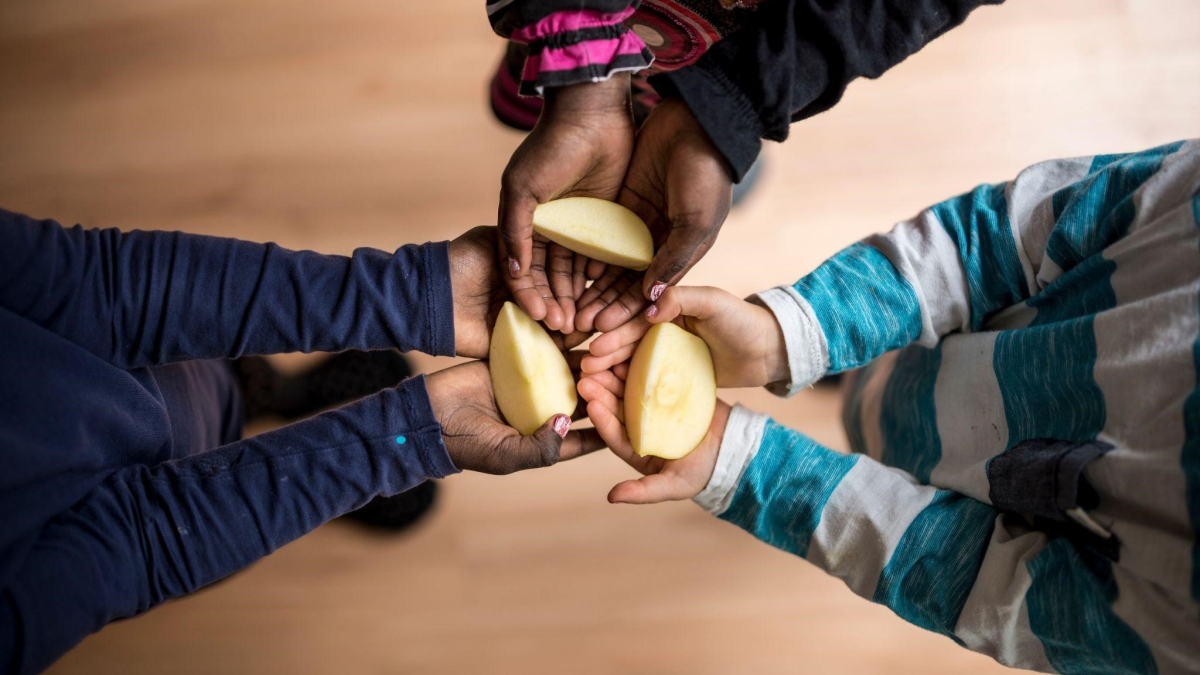ASU study: Parents’ racial attitudes predict children’s generosity

“These findings indicate that young white children are clearly picking up on their socializer’s attitudes about race, even if their parents aren’t necessarily aware of these attitudes,” said Tracy Spinrad, professor in the T. Denny Sanford School of Social and Family Dynamics and director of the research project. Photo courtesy Adobe Stock
An Arizona State University study published in the Society for Research in Child Development’s flagship journal provides new evidence that children’s prosocial behavior or generosity is predicted by their parents’ implicit racial biases, which are beliefs or racial preferences that are outside of a person’s awareness.
The researchers specifically studied white children’s willingness to share chocolate candies to determine whether the children preferred to share with other children who are their own race or those who are Black.
Previous research has established that children with high self-regulation, or the ability to manage their own emotions and behaviors, tend to be more generous toward peers. Prior research has not, however, considered whether racial preference matters. This study sought to partially fill this gap by exploring the role of parents’ implicit racial attitudes.
The researchers used several methods to accomplish this goal. Parents first completed an implicit associations test to measure implicit racial attitudes, then filled out a questionnaire to report on their children’s self-regulation skills. Children participated in a chocolate-sharing task that allowed them to choose whether to keep chocolates for themselves or to share their chocolates with Black children or with white children.
RELATED: ASU study: Children’s race-based caring and sharing changes with age
The research showed that children's self-regulation was an important predictor of generosity when the target of their prosocial behavior was another white child. When it came to sharing chocolates with Black children, however, parents’ racial attitudes mattered.
When the parents had an implicit preference for their own race, the children were less likely to share chocolates with Black peers, regardless of their children’s self-regulation skills. When parents did not have this implicit preference, the children with strong self-regulation skills were more likely to share their chocolates with Black peers.
The study therefore accomplished two things: It confirmed prior research tying self-regulation skills to prosocial behavior, and it revealed the complex role of implicit racial bias in parents.
“These findings indicate that young white children are clearly picking up on their socializer’s attitudes about race, even if their parents aren’t necessarily aware of these attitudes,” said Tracy Spinrad, professor in the T. Denny Sanford School of Social and Family Dynamics and director of the research project.
Although the study only considers a limited demographic, it suggests a link that researchers can further explore to establish causality. It also implies ways to improve relationships among diverse groups of children, according to Spinrad.
“The findings suggest that it is important to reduce parents’ implicit negativity toward historically marginalized groups and improve children’s self-regulation, which can be used to promote positive intergroup relationships among children,” Spinrad said.
This study was funded by the Institute for Social Science Research at ASU, the T. Denny Sanford School of Social and Family Dynamics’ Diversity Scholarship Grant and Lehigh University’s Faculty Innovation Grant.
More Science and technology

4 ASU researchers named senior members of the National Academy of Inventors
The National Academy of Inventors recently named four Arizona State University researchers as senior members to the prestigious…

Transforming Arizona’s highways for a smoother drive
Imagine you’re driving down a smooth stretch of road. Your tires have firm traction. There are no potholes you need to swerve to…

The Sun Devil who revolutionized kitty litter
If you have a cat, there’s a good chance you’re benefiting from the work of an Arizona State University alumna. In honor of…

